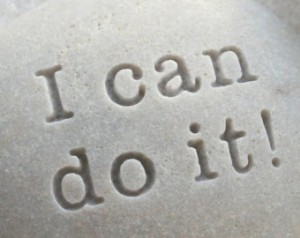 Several years ago when we first introduced the concept of self-reliance to our students, I realized I had some work to do in this area. It is funny how you know what others need – but when you look deeply at yourself, you may see that you personally have the same needs. I realized that I was more than willing to ask others to do things for me that I was perfectly capable of completing – ( I called it delegating) – but really it was giving away what I was responsible for myself.
Several years ago when we first introduced the concept of self-reliance to our students, I realized I had some work to do in this area. It is funny how you know what others need – but when you look deeply at yourself, you may see that you personally have the same needs. I realized that I was more than willing to ask others to do things for me that I was perfectly capable of completing – ( I called it delegating) – but really it was giving away what I was responsible for myself.
To build self reliance in our children, we have to as parents, stop doing things for them that they are able to do themselves. We can help build this character trait in our child in both school and in life with a few simple tips.
- Provide responsibilities – All children need chores or a way to contribute to the family, for them to learn responsibility and to learn that they can do things on their on. Beyond household chores they are responsible for their school work too. In any event, it is the completion of responsibilities on their own that creates self reliance.
- Organization – it is key that they have a schedule, a workplace, possibly a checklist, before starting work on a project. Help them to keep all of this in one place, and they can begin their work independently from start to end. This step can be done with household chores or school work.
- Chunking their work – Breaking up any goal into smaller tasks and checking them off, helps them to see their progress that they are making on a larger project. You will have to show them how to think that way, make their list and concentrate on the smaller individual areas one at a time.
- Use a timer – Set the timer and have them work independently for a designated amount of time – without asking questions, getting up or talking – this is their time to work on the project. When the timer goes off they can choose to continue or get up and move around or ask questions. Check to see the progress they have made and see if anything can be checked off the task list.
Finally, making mistakes is the OK. Do not hurry in to fix the bed that is not perfectly made, or the homework that is not as good as you would have done (it is not your homework). Practice leads to learning and mastery. Praise the effort, the initiative and find one good thing to praise.
Based on my own experience, I am thinking that there are probably some of us adults that could put these tips into action for ourselves. I did!
